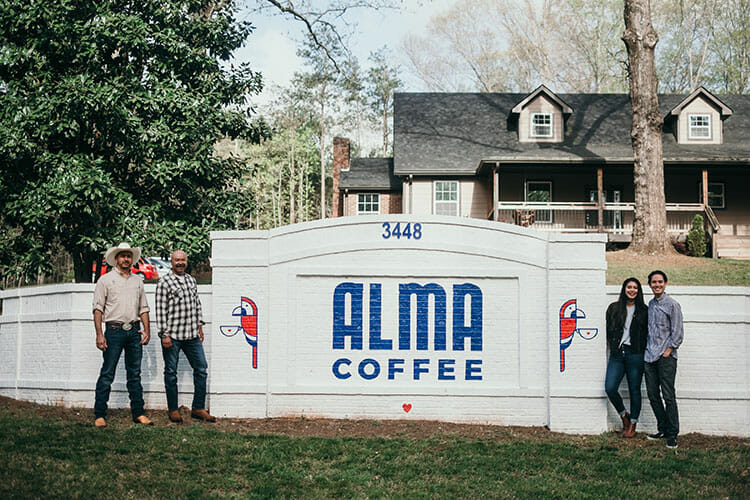We were excited to start working with Alma Coffee back in May. It felt like the world was in chaos and so much was uncertain, but we knew Alma’s coffees were something MistoBox subscribers would love. Now that they’ve been named Favorite New Roaster of 2020, we know that subscribers saw what we did. Alma means “soul” in Spanish and that is exactly what they bring with every small batch of roasted coffee beans. Their coffee tells a story and we wanted to tell a little more of theirs. We took some time to connect with Leticia Hutchins, co-founder, and co-owner alongside her partner, Harry Hutchins, and her Father Al Lopez, to learn more about Alma’s genesis, mission, and what they have planned for the future.
[MB] What’s the most important thing that MistoBox customers should know about Alma?
[Leticia] We are 5th generation coffee farmers from Honduras that own our own farms. We roast the very same coffee we grew in our state of the art roastery in North Georgia.
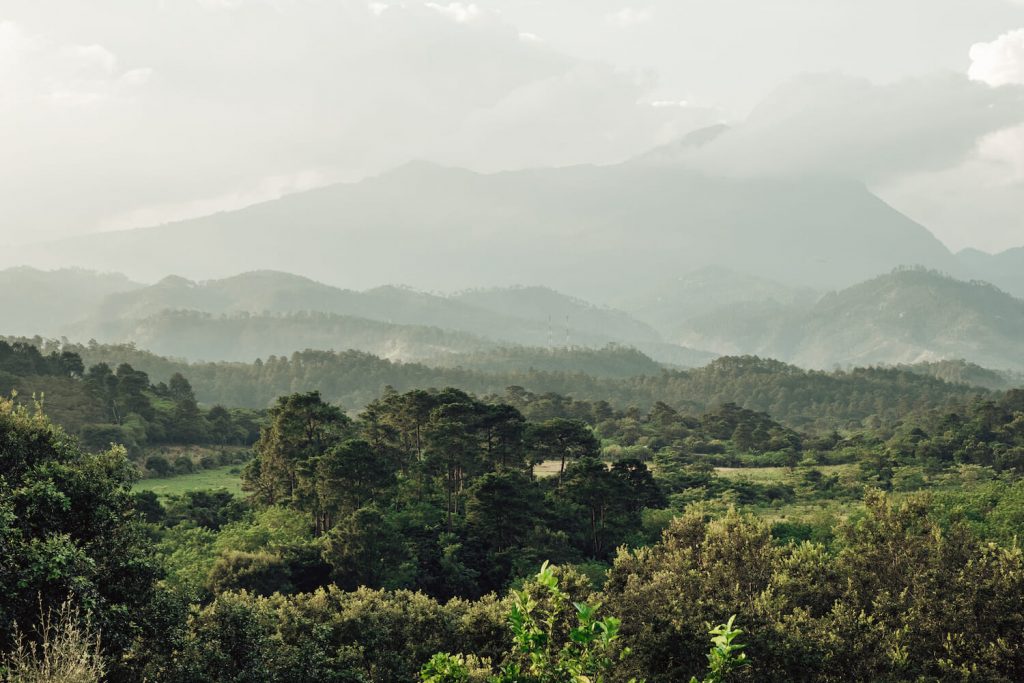
[MB] If Alma was an emoji- what would you be and why?
[Leticia] The blue heart emoji for sure. Heart imagery can be found all over our branding and our brand color is blue!💙
[MB] So your dad is from Honduras and you grew up in the States, but visited every year. What was that like as a kid?
[Leticia] Yes, my dad is from a small town called Corquin in Copan, Honduras. I grew up thinking every kid went to Honduras and spent the holidays in coffee farms. I loved it mainly because I am a huge animal lover and there were so many animals everywhere; cats, dogs, cows, chickens, etc… I didn’t fully understand the meaning of what we were doing at the coffee farms at the time, but I sure had fun munching on coffee cherries and playing between the trees.
[MB] So farming specialty coffee is in your blood. What made your family decide to start roasting?
[Leticia] Since our family has been growing coffee for multiple generations, we were blessed with amazing land with nutrient-rich soil. In 2008 my dad (Al Lopez) began building a state of the art model farm to ensure we were always producing delicious specialty coffee that would change the perception of Honduran coffee. Roasting in the USA was something that Harry (my husband) and I decided to do in 2018. Up until then, our family had never roasted our own coffee nor been able to serve it directly to customers. Harry and I were deep into our corporate accounting careers but felt a calling to make a difference in the world, even if it was in a small way. We started using all of our vacation days to visit our family farms in Honduras. We instantly fell in love with the positive change we could make through coffee and decided we wanted to take our family legacy one step further by roasting! We quite literally took a leap of faith, we quit our jobs, and the next day we were at the SCA Expo in Seattle. It is a rewarding feeling every single day when we can take the time to educate coffee lovers on all the steps that it takes to get that very coffee in their cup.
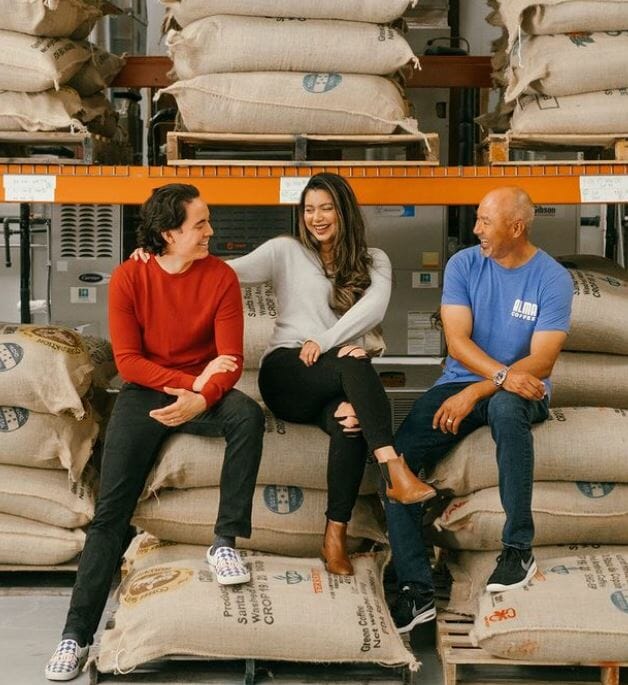
[MB] What has kept you motivated?
Being able to put a smile on someone’s face motivates us!
Leticia HUtchins, CO-Owner Alma Coffees
[Leticia] There are so many things that keep us motivated but if I had to narrow it down to three things it would be our mission statement; improving lives, sustainable practices, and bringing people extraordinary coffee. Improving lives is something that we see on many levels, whether it is down at our farm with the over 250 pickers that we host during harvest season or at our roastery when we serve someone their morning cup of coffee. Being able to put a smile on someone’s face motivates us! As coffee farmers we believe it is our duty to live sustainably, we recycle as many coffee byproducts as possible, have a zero hunting/deforestation policy at our farms, and roast on a Loring smart roaster to reduce our carbon footprint. Last but not least, providing extraordinary coffee. So many hands have poured their heart and soul into the beans that make up a single cup of coffee, being able to pay homage to that keeps us going!
[MB] Tell us more about what’s going on in Copan, Honduras? It’s been a tough couple of years for the region with the falling price of coffee, encroachment for other land uses, and extreme weather events. How are people coping?
[Leticia] It has definitely been a couple of tough years in Honduras and at our farms. For coffee farmers in general, coffee prices are so low they are unlivable. My dad, Al recently did a TedX video on this where he talks about how green bean pricing has decreased. To put it into perspective, he moved to the USA in 1977 when green bean pricing was $2.32, now it is around $1.14…so crazy!! This is with labor pricing and gas prices going up! Coffee farmers literally can’t put shoes on their kids’ feet so they resort to burning their farms and raising cattle or turning to illegal activities out of necessity. We personally know farmers who have given up on the industry and if you look it up online you can find videos of farmers chopping down their beautiful farms because they are fed up with not even being able to break even on their crop.I won’t even get into the COVID issues as we have all lived through it but on top of it, Honduras experienced two destructive hurricanes back to back in November. The restoration efforts are just beginning and will take years to restore. To learn more you can read our recent blog post that goes into more depth about the devastation from the hurricanes.
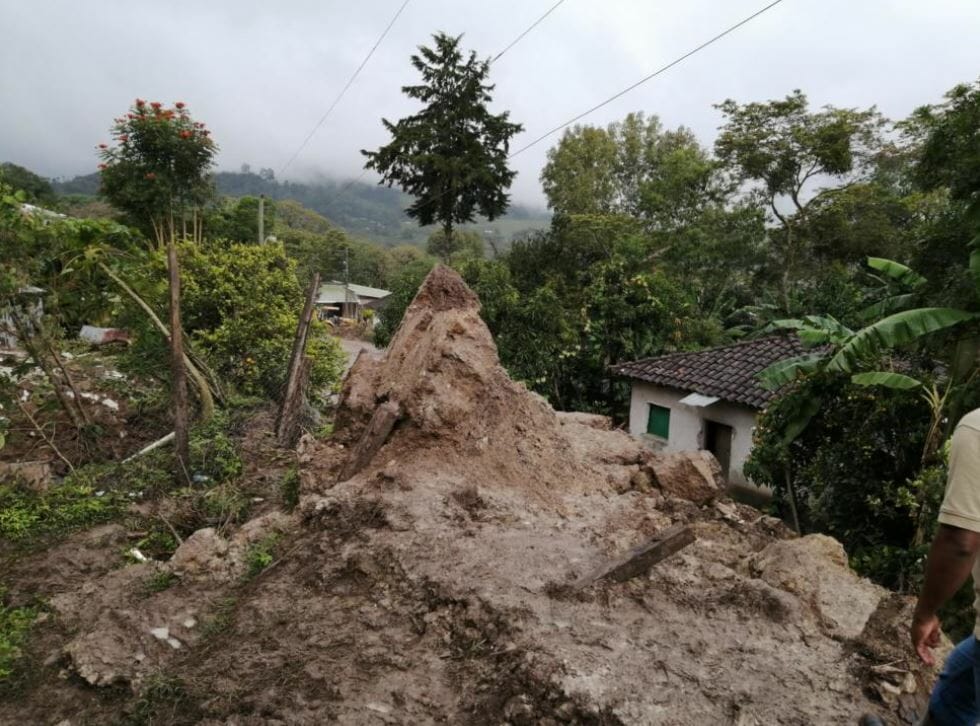
[Q] Alma has made an effort to source coffees from neighboring farms and calling them “Alma-doptions.” What do you look for when sourcing new partners?
[Leticia] The Alma-doptions are something we wanted to do early on. It’s one thing to source from yourself as a coffee farmer, but being able to impact other farmers is how we believe we can keep the industry sustainable. When looking for our alma-doption partners we follow our 3 key pillars; improving lives, sustainable practices, and extraordinary coffee. If all three of those are met, then we know it will be a life long partnership for years to come.
Coffee is a powerful instrument for social good
Al Lopez
[MB] Who do you look up to in coffee?
[Leticia] We really look up Robbie Roberts and his team at Joe Van Gogh out of Hillsborough, North Carolina. When Harry and I quit our jobs, and 2 days later, landed at the SCA in 2018 bright-eyed and excited about getting into roasting, Robbie, the owner at Joe Van Gogh took us under his wing and helped us with absolutely every single question we had. He even had us shadow his team for a week to understand the ins and outs of a roastery. They run a tight ship and we emulate that same model because of the foundation they have provided us.Today, we have an amazing relationship. Their team has come to our family farms various times and we look forward to seeing how it continues to grow in the following years.
[MB] What’s an issue in coffee you care about deeply?
[Leticia] I really care about women in the coffee industry. We are just very underrepresented and it’s unfortunate because we are involved in every single step of the process. A big reason as to why we chose the name “Alma” was because it was a feminine name. It also means ‘soul’ in Spanish so it was a very meaningful word that was catchy! In coffee-growing countries, many times daughters do not inherit their family’s coffee farms, instead, their husband or brother will. I actually own my own farm called Finca La Unica. This is super rare and we did this to provide an example to the community that women can successfully own and operate their own farms.
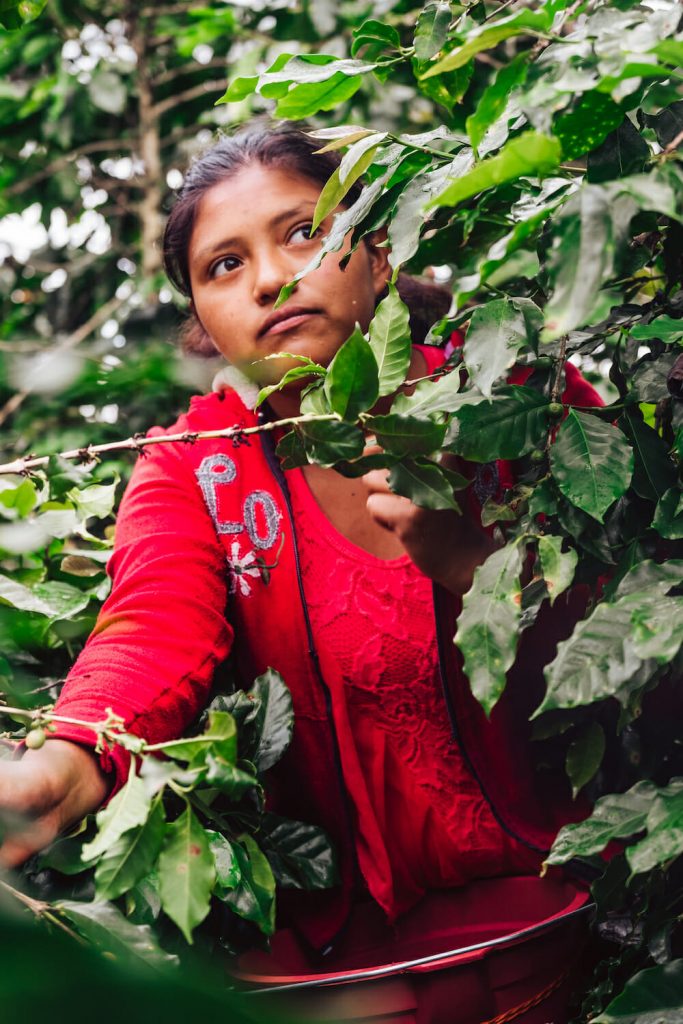
[MB] What makes you the most excited about the future of specialty coffee?
[Leticia] I get most excited when I see that consumers are caring about where their specialty coffee is coming from. Every day we have someone stop by who has no idea who we are and the first thing they ask is “where does your coffee come from.” This gets me giddy with excitement because I know they CARE! Our goal is not that you buy Alma Coffee (although we love it when you do) but it’s for coffee drinkers to care about where their coffee is coming from. A quick guide on how to do your part, ask these three questions when you visit your favorite local coffee shop/roasterDo you know who roasted this coffee?
Do you know where this coffee came from?
Do you know the name of the farm/farmer who grew this coffee?
Have you tried an Alma coffee yet? Browse our selection of Alma specialty coffees and add a little soul to your cup or get your Mistobox coffee subscription box.
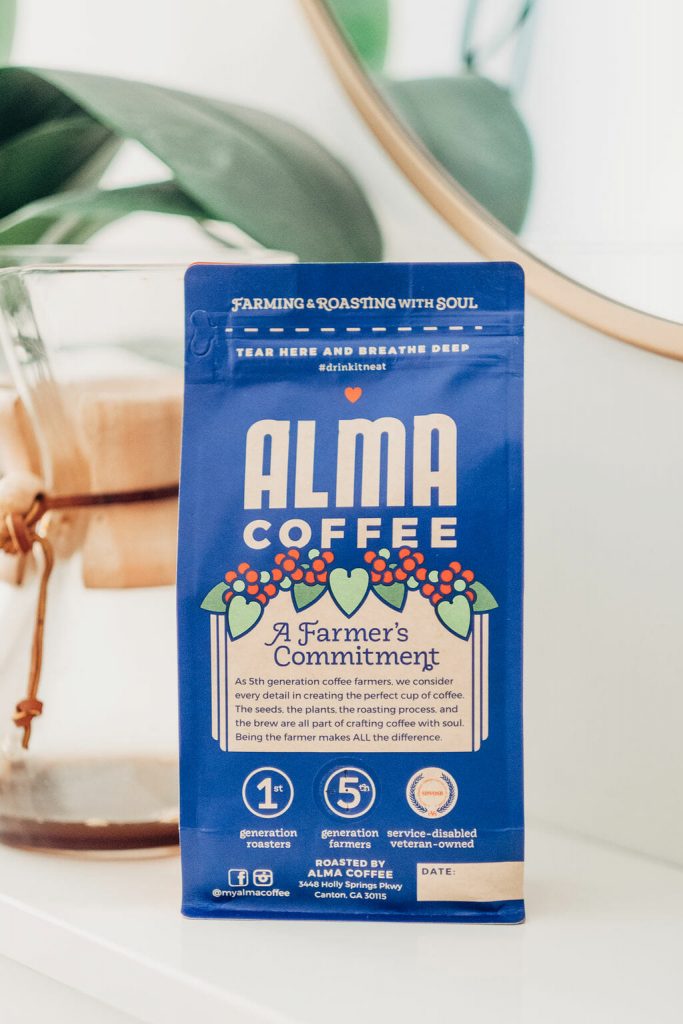
Learn more about specialty coffee on Mistobox tasting series.

